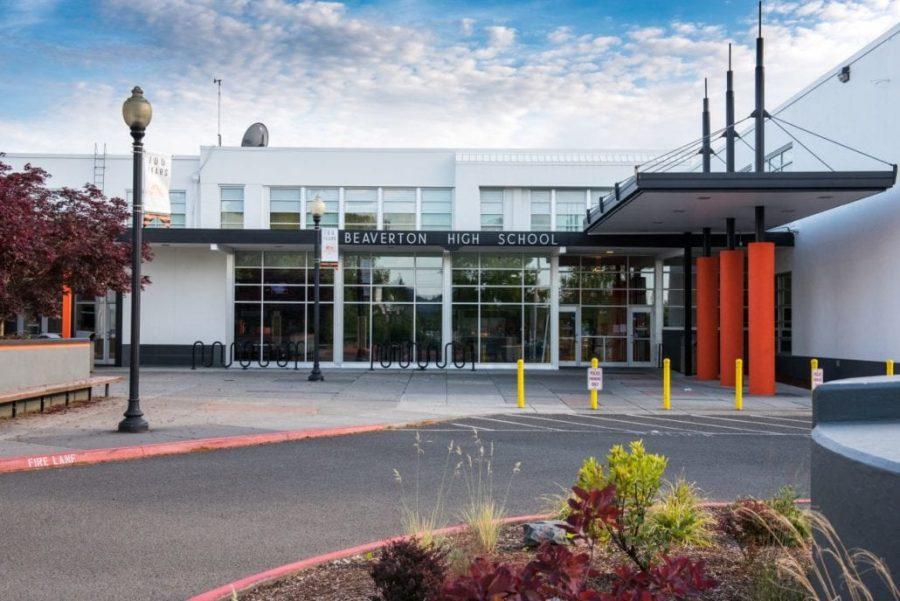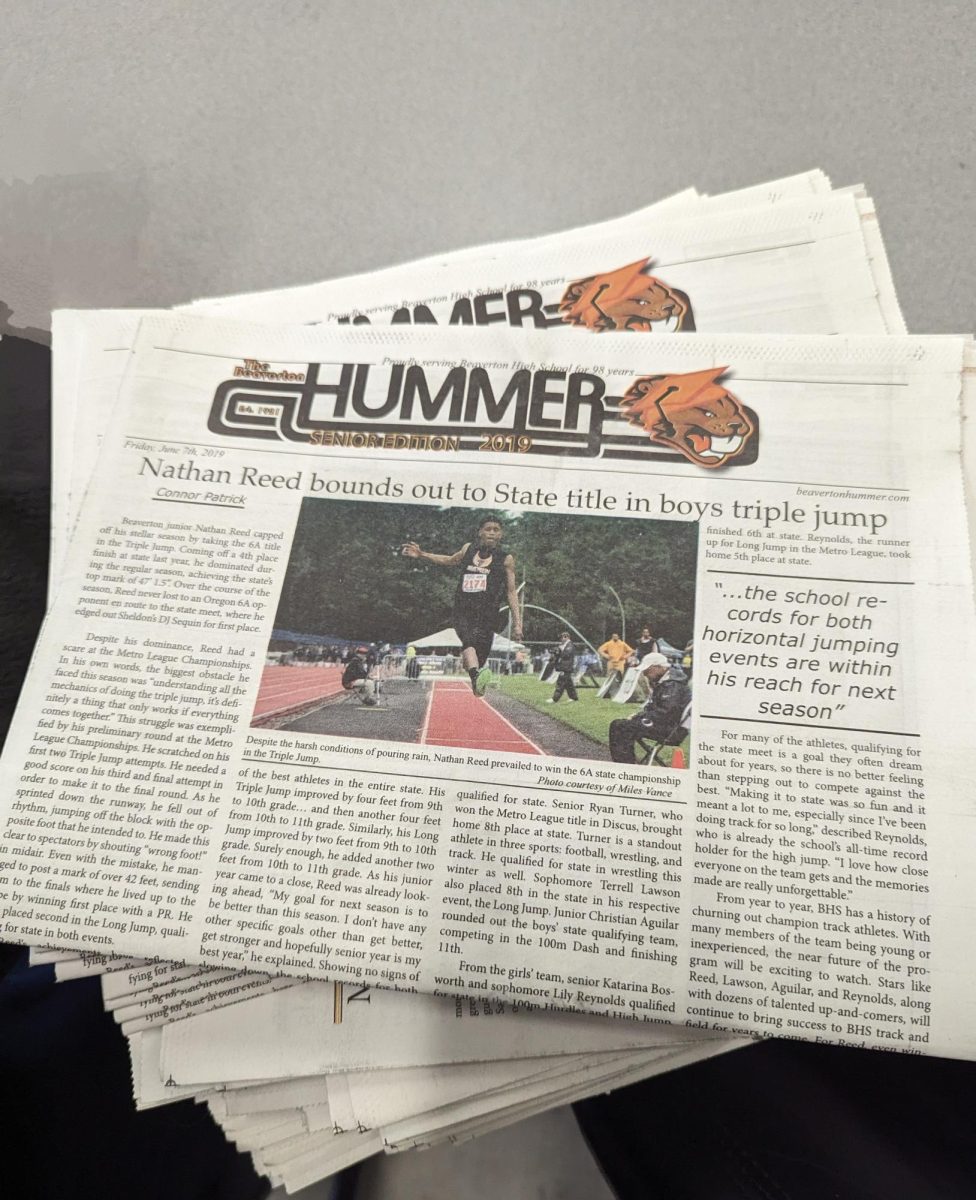Recently, students and faculty at Beaverton High have expressed concerns that our school administrators are out of touch with the student body. Given the constant stream of advisories and assemblies during Beaver Lodge, it’s not surprising.
We’ve all had that moment where we walk into Beaver Lodge, ready to either slack off or get things done, only to find out we’re having an advisory. Most people zone out while the teacher drones about something they’ll forget the second they walk out the door. But for those who planned to get work done or meet with a teacher, this is frustrating. And when students ask teachers why they need to learn the advisory lessons, they get the same response: “It’s not my choice. The administrators give us these lessons.”
Students then direct their criticism toward the “big bad administrators.” Got a problem with the number of assemblies? Blame the administrators. Are advisories dull and time-consuming? It’s all the admins’ fault.
But is it true? Are administrators to blame, or are we blowing things out of proportion? To learn more, I talked with BHS math teacher Peter Zaworski.
“I don’t think any one topic is inappropriate for advisories, I just wish we had less overall…You don’t want burnout for your students or your staff,” said Zaworski. He followed up with his concern that he’s not able to see his students often enough to help them succeed in class.
Social studies teacher Dominic Sandri expressed a similar sentiment, doubting teachers’ abilities to adequately discuss the material covered in advisories.
“The time tends to be too long,” Sandri said. “The subject matter is relevant, but the people who carry them out are probably not the best ones to do it. As a social studies teacher, I’m probably not prepared to give lessons on blackface and mental health issues. People have to get their master’s degree for that kind of thing.” Sandri suggested bringing in experts when discussing heavy topics.
Students aren’t complaining for fun—even the staff are disgruntled. But how are they affected? What’s their role in Beaver Lodge?
Teachers aren’t legally allowed to teach Beaver Lodge—if they were, they would go over their maximum number of classes, five. (The other two periods are for planning.) Instead, it’s a duty. Remember in elementary school, when teachers watched you run around the playground at recess? That’s a duty.
A teacher’s job during Beaver Lodge is to make sure students don’t do anything stupid. Advisories are where it gets iffy, though, because teachers can’t teach or plan lessons for that class period. The solution? Administrators create the lesson plans, and teachers read off of them.
But if administrators make it easy for teachers, what’s the problem?
It’s that students’ attitudes toward advisories have turned into something like, “Hey, the teacher’s reading from the screen. Even they look bored, so we don’t have to pay attention.”
This is why no one likes advisories. Teachers are disinterested because they aren’t qualified to teach the curriculum, and they spread that disinterest to students. It’s a lose-lose situation. Paired with students’ annoyance that there’s less time to work and access teachers, this magnifies an already tense situation.
“Beaver Lodges are really important for me because I get so much work done, and Beaver Lodge advisories can be distracting,” said senior Gray Snyder. “Though the lessons are important, I find myself and other students […] not getting much out of it.”
It’s unfortunate: since advisories happen so often, their content has become white noise, with students paying less and less attention as the days go by. It doesn’t help that lately, we’ve had more Wednesday Beaver Lodges than usual due to days off.
I used to blame the administrators for the long, boring advisories. But I no longer believe they ignore us. Here’s why.
The best example of this is Beaver Congress. This year, administrators are present during meetings, much to the dismay of many Congress members. But according to Dr. Anne Erwin, this wasn’t always the case.
“I wanted students to feel comfortable speaking, so we did not have an admin there,” Erwin told me about Beaver Congress last year. “Halfway through the school year, [students] said, ‘We need the principal to hear what’s on our minds.’” As a result, an administrator was present at the final Beaver Congress meeting.
This, if anything, demonstrates our administrators’ willingness to listen to students. But it also shows that opinions change, making it difficult to shape the school to everyone’s liking.
Regardless, miscommunication remains. “Listen,” Sandri advised administrators. “You’ve got your own ideas about where you want the school to go. But listen to the people who’ve been here for a while.”
And if students have any comments or questions for Dr. Erwin, it’s simple. “Stop me in the hall, stop me at lunch. Just send me an email.”
We need more communication between students and administrators. The most important thing is that we keep trying and refuse to quit.
Picture from the Beaverton High School Success Fund.



![Social Media has contributed to the rise of the incel movement [Photo via Wikimedia Commons under Creative Commons license].](https://beavertonhummer.com/wp-content/uploads/2025/02/Man_on_a_smartphone_Unsplash-1200x800.jpg)

!["About The Weather" was released in 2023 as the first album by Portland emo band, Mauve. [About The Weather Album Cover]](https://beavertonhummer.com/wp-content/uploads/2024/05/AboutTheWeather.jpg)



beavertonhigh • Nov 18, 2019 at 9:20 am
Reblogged this on Beaver Tales and commented:
Via Beaverton Hummer.com
LEARNING TRANSFORMS US.
#ExperienceBHS #ourBHSstory